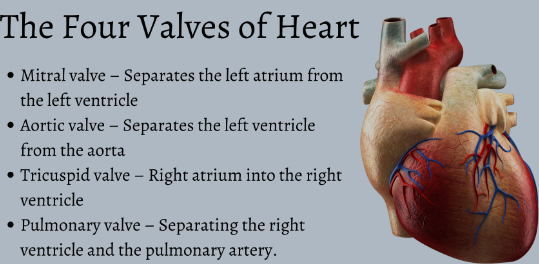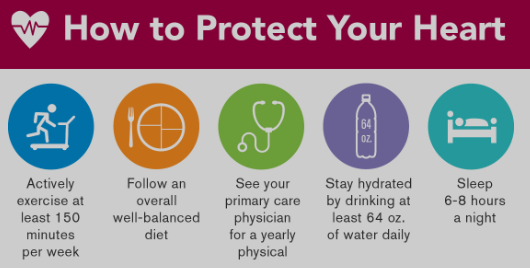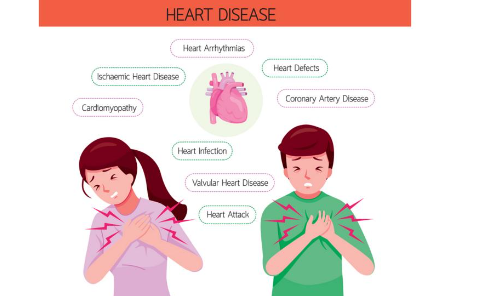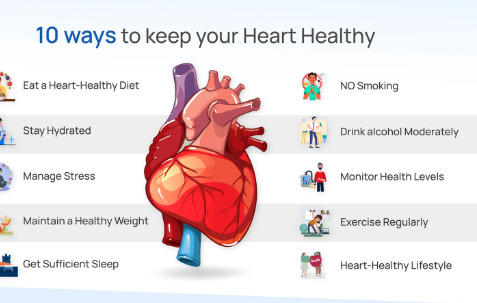One of the most important organs of the human body is the heart. It circulates blood throughout the body and supplies oxygen and nutrients to every cell. A healthy heart means a healthy life. But, in the present era, heart problems are increasing due to various reasons. Hence, proper care and awareness is required to maintain good heart health. In this post we will discuss the function of the heart, its health implications and some effective tips to maintain a healthy heart.
Heart function

The heart, commonly known as the heart, is a type of muscle. It keeps the whole body functioning by circulating the blood. The heart mainly performs two main functions:
- Blood pumping: The heart beats about 70 times per minute, and circulates blood with each beat. It carries oxygenated blood from the lungs to the rest of the body and sends deoxygenated blood back to the lungs, where the blood is re-oxygenated.
- Blood pressure regulation: The heart plays an important role in regulating blood pressure in the body. It increases or decreases blood flow based on different needs of the body.
Health effects on the heart

There is a direct relationship between heart performance and our daily health. A healthy heart ensures that every part of the body is getting enough blood, oxygen, and nutrients. In addition, the following factors have a profound effect on the heart:
- Blood Circulation Problems: If the heart cannot circulate the blood properly, various parts of the body are deprived of oxygen and nutrients. This can lead to weakness, fatigue and various physical problems.
- Blood pressure problems: High blood pressure puts extra pressure on the heart, which reduces the heart’s efficiency. High blood pressure can lead to heart attacks, strokes and other serious problems.
- Effect of Cholesterol: High cholesterol levels in the blood cause blockages in the arteries of the heart. It is one of the leading causes of heart attacks.
- Stress and Stress: Excessive stress reduces heart function. Stress can increase heart rate and blood pressure, which can damage the heart.

Tips to maintain a healthy heart
- Proper Diet: A good diet is very important for heart health. Fruits, vegetables, whole grains and low-fat proteins should be eaten regularly. Fish, nuts, and foods rich in omega-3 fatty acids are heart-healthy. Avoid oil, ghee, and excess fat.
- Regular exercise: At least 30 minutes of physical activity should be done every day. Walking, swimming, cycling, and yoga are very beneficial for the heart. Regular exercise regulates blood pressure and lowers cholesterol levels.
- Avoiding smoking and drinking: Smoking narrows the arteries of the heart and is seriously harmful to heart health. Alcohol also has a negative effect on the heart. So to maintain a healthy heart they should be avoided.
- Weight control: Excess weight puts stress on the heart. Therefore, it is important to follow a healthy diet and exercise regularly to maintain a healthy weight.
- Adequate sleep: Sleep at least 7-8 hours daily. Adequate sleep reduces stress and reduces stress on the heart. Lack of sleep increases the risk of high blood pressure and heart disease.
- Stress reduction: Meditation, yoga, and breathing control exercises can be used to reduce stress. Apart from this, spending time with family, doing favorite activities and getting enough rest also help in reducing stress.
- Regular Heart Checkup: Heart checkup should be done at least once a year to stay aware of heart health. Blood pressure, cholesterol, and blood sugar levels should be checked regularly.
Symptoms of heart disease

Knowing the early signs of heart disease is important to maintain a healthy heart. Below are some important symptoms:
- Chest pain or pressure
- shortness of breath
- Fatigue or weakness
- Swelling of the hands, feet, or face
- Rapid heartbeat
If any such symptoms occur, a doctor should be consulted immediately.
Heart is a very important organ of our body. Keeping it healthy means increasing the quality of life. We can easily keep our heart healthy through proper diet, regular exercise, stress reduction and regular heart checkups. Heart disease prevention awareness and making small changes in daily life is the key to a long and healthy life.



